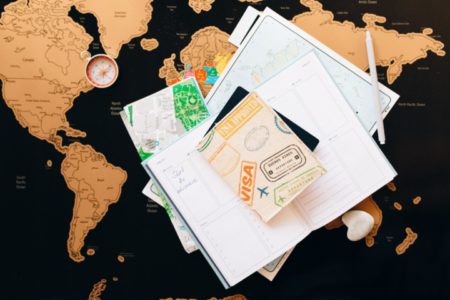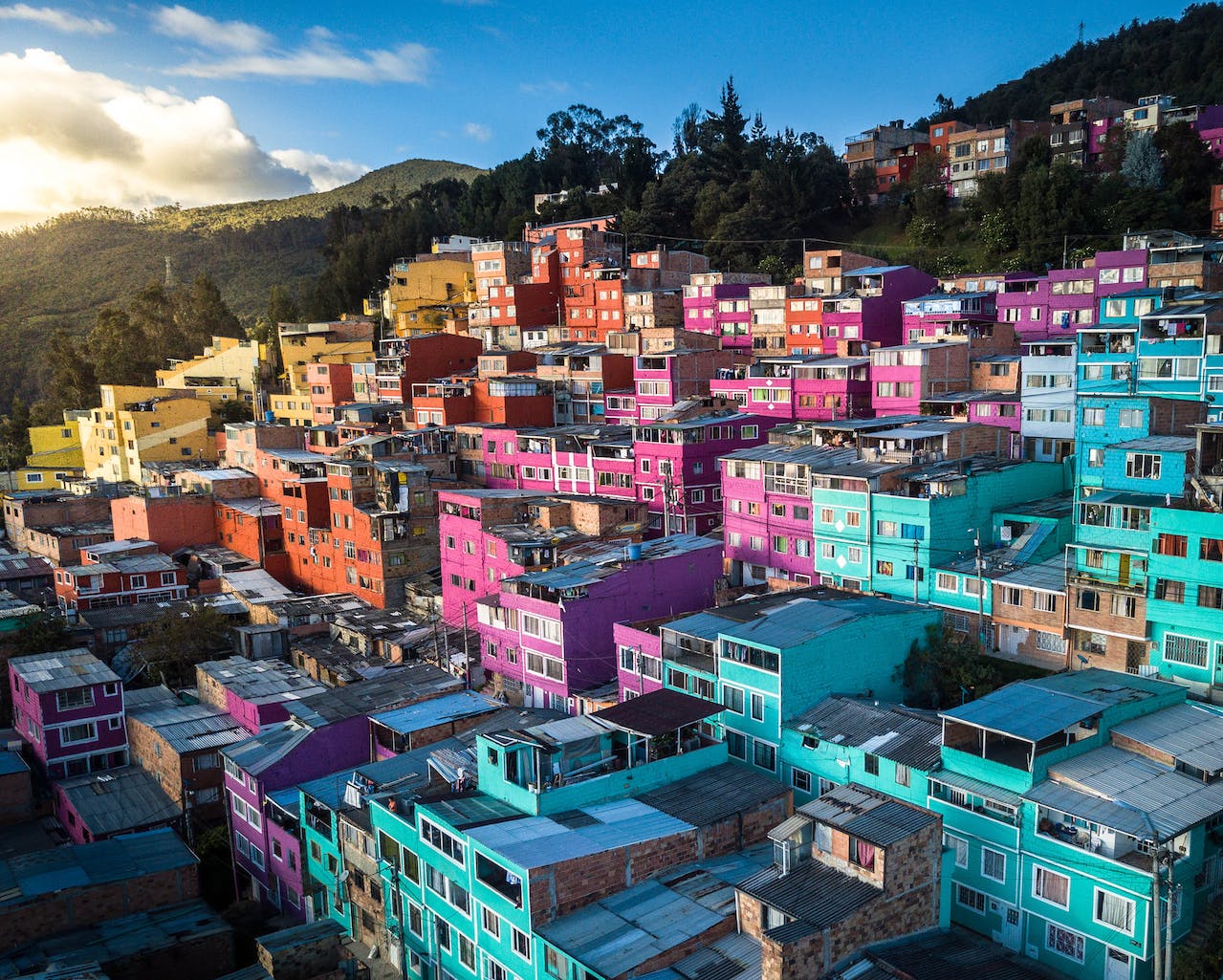Over the past few months, I’ve talked to a plethora of Black ex-pats who have fallen in love with life outside of the US. As a matter of fact, living abroad as a Black American seems to be the move. In 2019, there were over 10 million Americans living outside of the US and the numbers are growing each year. Whether citizens are leaving for a better quality of life or to escape the rising prices of goods in the states, people are leaving the country left and right.
While relocating and living abroad may be in your plans, there are multiple steps you need to take before embarking on your journey. Securing legal documents, paying taxes, and moving your belongings overseas are just a few things you’ll need to address before your big move. Travel Noire has you covered and, after doing a bit of research, we’ve compiled a list of the main things to prioritize when moving abroad. Keep these things in mind as you figure out how much it really costs for you to leave the US.
VISA and Legal Fees

In order to live abroad in a foreign country, the first thing you need to acquire is a visa. The cost of your visa will depend on many factors such as which country you’re traveling to, the length of your stay, and the type of visa you need. There are also multiple types of visas to choose from depending on your situation.
Remember, if you plan on living outside of the US for more than 3 months, you’ll need a visa. Some countries like Thailand, Laos, and Cambodia also have 30 and 60-day visas. On the high end, Australia has the highest visa cost at $232 and the price continues to go down from there. Countries like Canada, Mexico, France, Italy, and New Zealand don’t require a visa to visit. You can use this visa check tool to see what countries require prices, the documents you need, and the cost.
Your reason for visiting the country will determine what type of visa or legal documents you need. For example, while you don’t need a visa to visit France for a long duration of time, you do need a residence permit if you intend to relocate to the country. The country you’re visiting also determines how long the visa you obtain last. Some countries, like Costa Rica, have visas that last up to 90 days. Other places like Thailand only issue 15 to 30-day visas. Wherever you’re headed, expect to spend between $25 and $232 on your visa. If you plan on staying in the country permanently, there may be other fees and costs associated with getting extended visas and residence permits.
Moving Your Things

Moving furniture, cars, and pets overseas can get costly. You should expect to pay between $1,500 to $12,000 to ship your belongings. That price varies depending on how many things are being transported, the method of transport, and your relocation destination. When it comes to methods of transportation, you can ship your things via air and sea freight. You can also move your belongings via land freight if you’re relocating to Canada or Mexico.
As you can see, moving your things internationally can be a bit pricey. This is why many ex-pats opt out of moving furniture and household items altogether. They sell everything they have and purchase new things at their moving destination. Selling your belongings and starting fresh is one way you can save money on moving expenses.
Moving your car overseas can cost between $1,000 and $5,000 depending on what country you’re moving to and the moving company you hire, according to Consumer Affairs. Every country has different rules and regulations when it comes to moving cars. You’ll also have to follow similar protocol with acquiring a driver’s license, registering your vehicle, and getting car insurance. So make sure you budget for the additional cost and fees associated with moving your car internationally.
Housing

One of the first things you should search for before moving abroad is options for housing. Many ex-pats suggest renting initially when you arrive at your destination before permanently buying a home. They also recommend not signing a lease or sending any money to secure housing before seeing it first. Apartments and houses in other countries can be very different from the US. So make sure you know what you’re paying for beforehand.
The cost of rent in other countries ranges depending on where you’re moving and the level of luxury you’re seeking out. As a rule of thumb, many ex-pats suggest having $5,000 or three months’ worth of living expenses at your disposal before making an international move. If you are moving abroad with a family of three, they recommend having $15,000 saved up before leaving the US. Remember, it’s ultimately up to you how much money you want to have saved up before moving internationally.
Healthcare & Childcare

No matter where you live in the world, you want to have some type of healthcare coverage. You never know what will happen. So you want to make sure you’re able to get adequate care if an emergency or primary care needs arise.
Health insurance in other countries can range anywhere from $170 to $1,000 each month per person. This price can increase depending on your respective needs and the company you select. Some ex-pats secure insurance through their jobs but you can also buy it privately. Countries with some of the best healthcare in the world include France, New Zealand, Singapore, and Thailand.
Rates on childcare vary depending on what country you’re relocating to. However, many ex-pats find that other nations spend significantly more on childcare assistance than the US. Here, the United States only spends about $200 annually on early childhood education. Meanwhile, countries like Norway, Finland, and Denmark are spending nearly 30 thousand dollars a year per child. If you’re moving abroad with children, make sure you do ample research on childcare in that country to find out what your options are.
Storage

If you don’t plan on taking all your things with you but don’t want to sell them, then you’ll need to find somewhere to store your belongings. You could always ask friends and family who have extra space to store some of your things. However, if that’s not an option, you’ll need to find a good storage space.
The average cost of a storage unit cost around $190. Pricing can change based on the size of the unit. However, it can get as high as $300 depending on where it’s located. Be sure to acquire a storage unit that meets your needs. Things to take into consideration are if the unit is heated, protected from rodents and bugs, and if it is protected from any water entering.





